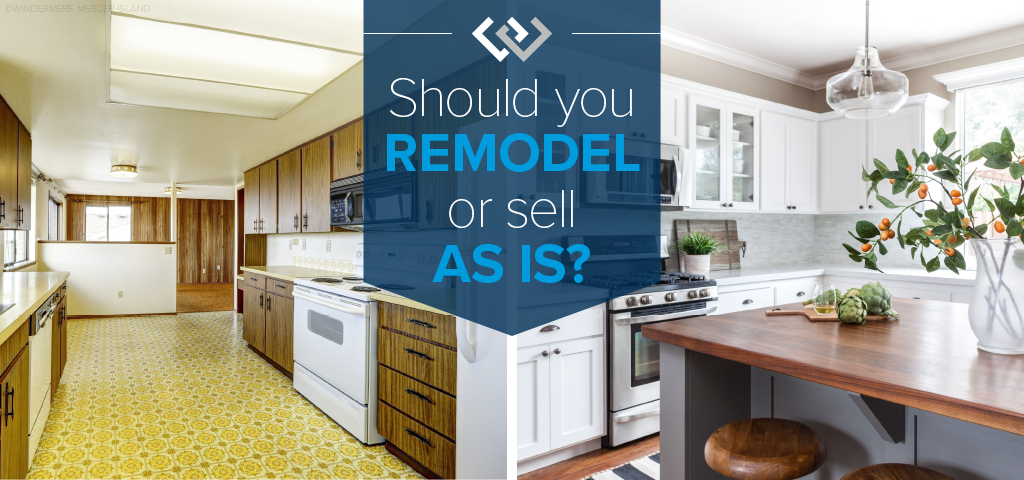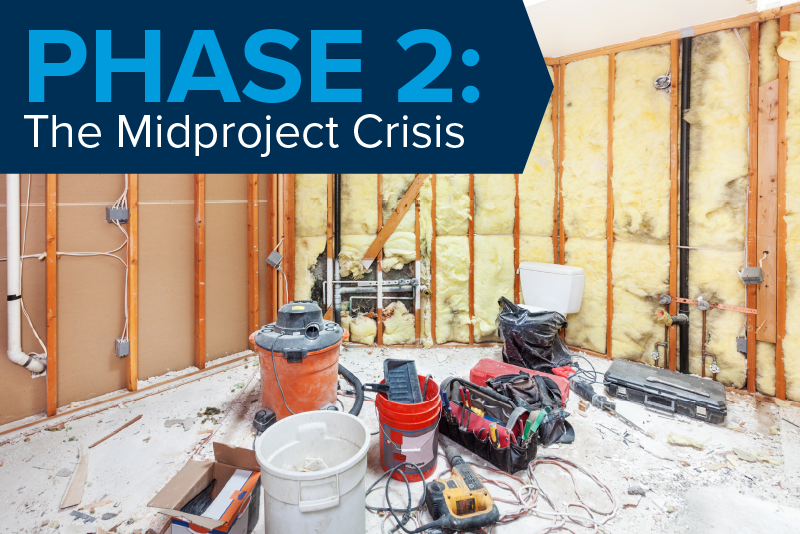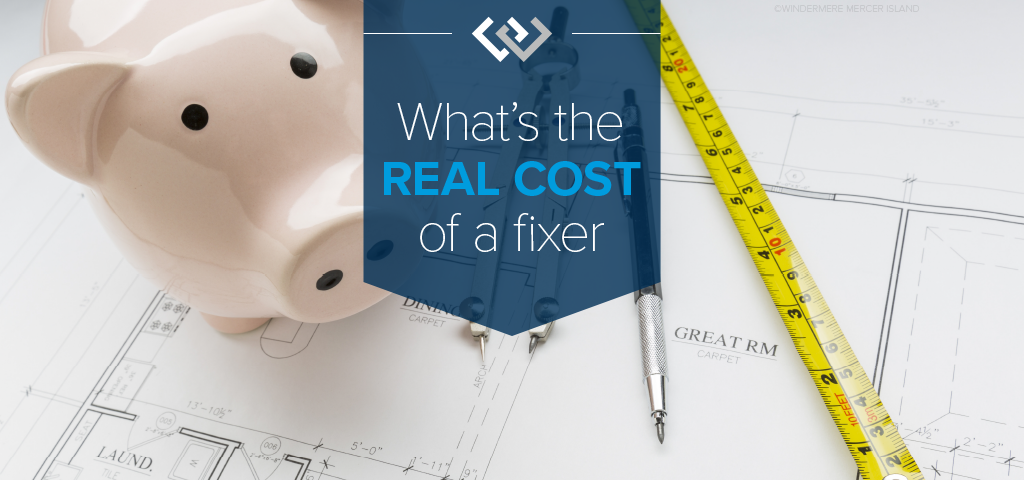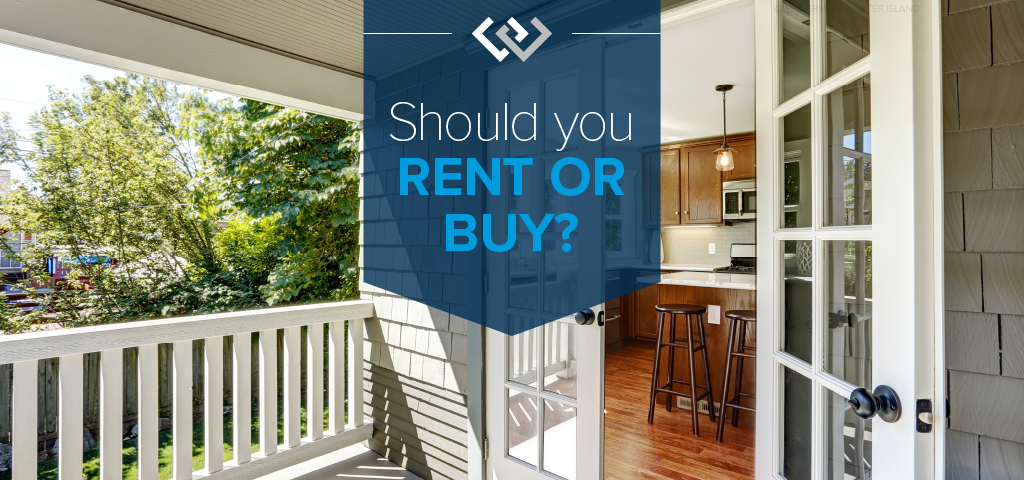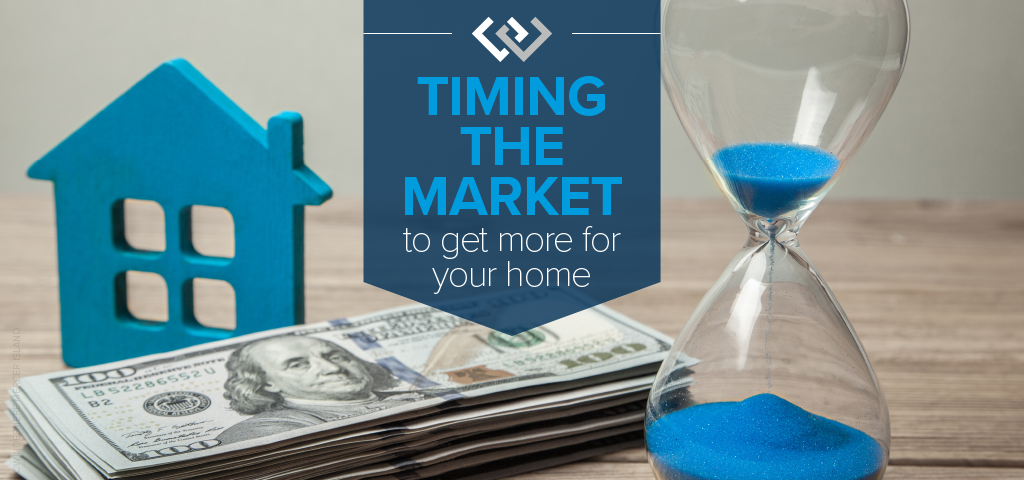Fourteen offers, all contingencies waived, earnest money deposit released to seller on offer acceptance. This is the norm rather than the exception in our current market. Sound crazy? It is! And we’ve been here before. Today’s buyers are likely paying considerably above market values to “win” the war and snag a house that they can live with for the foreseeable future. So long as prices keep increasing and demand is insatiable, that gamble might pay off nicely.
But eventually, something has to give. We know this because market cycles are inevitable. They keep our economy healthy and in check. If for example, mortgage interest rates increase too quickly, home prices become too unaffordable, or local or national events significantly impact consumer confidence, the market can turn on a dime. When it does, someone always gets left holding the bag (or an unsaleable house) as the market shifts from a seller’s market to a buyer’s market.
You might be wondering why a real estate company is suggesting you think twice before making the plunge. The truth is, we’re in it for the long haul and we know informed buyers are the best buyers. If you are a home seller wondering if we just showed your cards, fear not—having an informed buyer who has done their homework means they’re more likely to follow through to closing (and less likely to seek retribution from you later because of unknown or undisclosed defects). Read on!
FIRST THINGS FIRST
You know yourself and your situation better than anyone else. You need to be financially comfortable with the monthly payment, down payment, and ongoing costs of home ownership (see Should I Rent or Buy a Home?).
You will also want to consider whether an unexpected relocation could be in your near future. Do you feel secure in your employment situation? Knowing you could comfortably stay put and ride out the storm of any downturn in the market protects you considerably compared to being in a must-sell predicament. If you feel unsure about your financial position or might be required to relocate in the next couple of years, now might not be the right time for you to buy.
Your broker will be able to recommend prominent local lenders, inspectors, and other necessary vendors. Do your homework to select the right lender for you and make formal loan application with them to obtain underwriting approval. Beyond just pre-approval, underwriting approval assures you that your loan will go through (unless your employment situation changes or there is an issue with the house itself). This is well worth the time and effort to accomplish. While you’re at it, research potential inspectors to determine who you think will do the best job and what their options for completing an inspection within a tight timeline are.
If cash offers or those with waived financing contingencies are commonplace in the area you are searching, explore alternatives for funding your purchase. In addition to getting pre-underwritten, can you temporarily borrow funds from a 401k, investment account, or line of credit to allow you to better compete with cash? Do you have other interim options that would allow you to get in the door and obtain a purchase mortgage loan post-purchase? There are many nuances to making this work, but it might just be worth investigating if it is right for you.
Consider your risk tolerance level. This is something only you can determine, and everyone will have a different baseline. If you’ve checked off the items suggested above and decided you are financially and emotionally ready to get in the ring, how do you protect yourself when buying a home in an extreme seller’s market? Read on for things you can do to put yourself in the best possible position when buying a home—even in an ultra-competitive market. In this article, we will focus on critical aspects of the home itself and the home-specific research you should do before submitting an offer.
ASPECTS TO CONSIDER BEFORE YOU GET INTERESTED
Here are four attributes, beyond the number of bedrooms and baths, that you should have your eye on. Many buyers overlook undesirable aspects of a home when there are few choices, however “Grade A” properties will have the highest resale potential even in a future buyer’s market.
Home (building) quality: Well-built homes with “good bones” will outlast mediocre quality homes (and their components and systems) any day of the week. Determining quality is somewhat subjective. You will notice it in well-designed details, cabinetry and components that stand out from the competition. If the home has had renovations, do they match or exceed the quality of the original structure? Granted, affordability will impact quality, but it is critical to size up any home you are considering so that you’re comparing apples to apples. You don’t pay the latest iPhone price for a no name brand phone, and the same applies here. If you purchase a fair quality home at the going rate of higher quality homes, you are likely overpaying.
Immediate to-dos and deferred maintenance: Different than quality, a home’s upkeep requirements include the to-do list of items that need to be done to maintain its integrity. A home that has been well maintained over its life typically is a better investment than one that hasn’t. The true cost of deferred maintenance often adds up to more than the cost of the repairs themselves. Don’t forget to factor in the reduced life span of other components—like replacement of damaged wood beneath peeling paint or mold remediation in a damp basement caused by a clogged foundation drain. Also consider that if you know the furnace, roof, and exterior haven’t been properly maintained, what else also hasn’t been maintained that you don’t know about? Be careful to look past any “fluff” that may have been quickly done to prep the home for sale. See the Home-Specific Due Diligence below on how you can assess this before writing your offer. This article on Assessing the Real Cost of a Fixer is also a great resource.
Setting: The saying “location, location, location” didn’t get its fame from nowhere. A home with an ideal setting on its lot and in the neighborhood—away from busy roads and utility poles/boxes, with adequate privacy, good topography, best positioned to capture views if available, and not adjacent to undesirable elements—will have more value than a less-ideally situated home. Builders do this with lot premiums in new developments. When deciding what to pay for a property it is critical that you evaluate these aspects and any others relevant to a specific neighborhood to determine the +/- effect on value as compared to other recent sales.
Floor plan: How a home lives—flow from room to room, size of rooms, open/closed-off spaces, and below ground vs. above ground living—are every bit as important as the total home square footage. You can change a lot of things about a home, but it is more difficult to change a bad floor plan. Ensure that the floor plan is one that will work for you for the foreseeable future. That might mean more available bedrooms than you currently need, the structural ability to easily expand, or one-level living to allow you to age in place. When you are deciding a home’s potential value, consider the future relevancy of the floor plan for your lifestyle.
HOME-SPECIFIC RESEARCH
A great home hits the market and buyers are already lined up make an offer. It looks like an “A” property or something close. The clock is ticking, and you don’t want to lose out (again). Rather than getting caught up in the frenzy, take a deep breath, keep your wits about you and get to work. There is so much intel you and your broker can gather to ensure that the home you are considering won’t turn into your worst nightmare. Time is of the essence, so this is something you will want to do expeditiously.
Property photos and info: Of course, everyone looks at the home photos as soon as a new listing hits the market. Consider pulling them up on a big display and looking closely at things like room flow; condition of windows, floors, and major components like the roof and exterior; floor plan; proximity of neighboring properties; sun exposure; and topography. There is so much you can see when you are specifically looking for it. Don’t forget to check the description for key requirements that you can’t live without. Closer scrutiny of the info available before you go further will help you avoid wasted time.
Online research: Check out online maps of the street, neighborhood, and surrounds. Are there major roads or freeways, high voltage power lines, adverse topography, or other concerns that might affect your decision? Are there parks or other amenities that make this home more compelling? Is it located in an area with good cell coverage and high-speed internet? Even in our tech-oriented world, you’d be surprised how many pockets of inadequate coverage exist in our region. You can research this info, public records, and more using the Research tab on our website. This is a great first step in researching a home before you even jump in your car.
Property history: A simple search of the home address will bring up the listing and sale history on broker search websites. Your buyer broker can also access detailed listing, sale, and transfer history going back two decades or more. Use this information to better understand the property’s past. Was it recently sold as a fixer? Previously a foreclosure? Is it a flip? Those don’t necessarily eliminate a property, but they do add the need for another level of scrutiny. Do the previous photos or descriptions indicate non-permitted remodeling or otherwise warrant concern? What recent listings and sales have occurred in the vicinity? Do they support this home’s value? This will help you get a better picture of any home you are considering.
Seller disclosures and seller-procured inspections: With few exceptions, home sellers have had to disclose known defects and issues for more than three decades now via a Real Property Transfer Disclosure Statement aka Form 17. This document is typically uploaded to the listing and accessible to your buyer broker. Like everything you have done to this point, a close review of this disclosure lets you know more about this home. See Seller Property Disclosure: What You Need to Know Before You Buy.
Given the many components that make up a structure, every home will have some disclosed issues. If there are none, that should be a red flag itself. If the seller hired an inspector to conduct a pre-inspection, it will be noted in the disclosure and the inspection should be made available for your review. You are looking for a better understanding of past issues, resolutions, current issues, and ongoing concerns that might require further research.
Visiting the home: You’ve done your homework, and everything looks good so far. Take a drive by the home and neighborhood while you are waiting for your showing appointment to visit the home in person. While you are in the home, assuming it checks your boxes and you want to move forward, take a few minutes to take closer notice of typical problem areas. Here is a great guide on How to Spot Big Issues Before You Pay for a Home Inspection.
Buyer pre-inspections: A home inspection offers invaluable information on not only the current condition, but also on ongoing maintenance needs and items to be mindful of so they don’t become a bigger problem later. Unlike waiving most other contingencies in a purchase offer, where the worst that could happen is you lose your earnest money deposit, buying a home without an inspection could cost you tens or hundreds of thousands in unexpected repairs after closing. Here is a great home buyer book written by a local home inspector: The Confident House Hunter: A Home Inspector’s Tips for Finding Your Perfect House.
Let’s be honest, pre-inspections are hard to get scheduled right now. Sellers and listing brokers are just trying to get everyone in the door to see the home and blocking out a big chunk of time for a pre-inspection is often a challenge. With a little planning and coordination, here are some potential solutions to this challenge if scheduling an inspection during normal hours is not possible: see if the seller will allow a two-hour inspection at 7 am before the day’s showings; ask about conducting an inspection during a time when someone else is already inspecting (assuming all parties can properly distance and are okay with this); if all else fails, ask your inspector if they would consider reviewing any seller pre-inspection to help you assess its completeness.
In a less competitive environment, you might be able to simply include an inspection contingency with your offer. Also, don’t forget about wells and septic tanks. They’re kind of essential to you actually living in the home and having a non-performing well of a failed septic system is a bigger dilemma than you might imagine.
FINAL THOUGHTS
You’ve done what you need to do to investigate the property as thoroughly as possible and you want to proceed. Now is the time to determine if this is a “have to have” or “nice to have” home based on others that you’ve seen and strategize your offer accordingly. You might decide to waive typical contingencies and release all or part of your earnest money to the seller to make your offer more competitive. While there is no doubt a degree of risk in doing this, if you’ve done your due diligence ahead of time, this can be a compelling approach that doesn’t cost you any more at the closing table.
Of course, it is essential to have a competent real estate broker who can help you navigate these waters, determine the value (as compared to similar properties), history (permits, prior sales, etc.), and activity (other offers, pre-inspections, expressions of interest) of potential properties you are interested in. This helps you go in armed with the information to make sound decisions with a clear offer strategy that will help you win far more effectively than the typical guesswork that goes in too many offers written without this guidance.
Working with a reputable broker also makes for a more reputable offer. Any seller is looking for the assurance that their sale will close on time and as agreed. Most sellers feel more comfortable accepting an offer when there is good communication, a solid realtor, and a knowledgeable buyer behind it.
Lastly, be prepared for the adventure. There will be joy, surprise, heartbreak, anger, frustration, and bliss along the way. If you go in knowing it will be a challenge, you’ll be much better prepared for the market we are currently faced with.
Still have questions? Contact one of our knowledgeable brokers for assistance with how to purchase, sell, or determine the value of any property you are considering.
Find a Home | Sell Your Home | Property Research | Neighborhoods | Market Reports | Our Team
We earn the trust and loyalty of our brokers and clients by doing real estate exceptionally well. The leader in our market, we deliver client-focused service in an authentic, collaborative and transparent manner and with the unmatched knowledge and expertise that comes from decades of experience.
© Copyright 2021 Windermere Mercer Island.
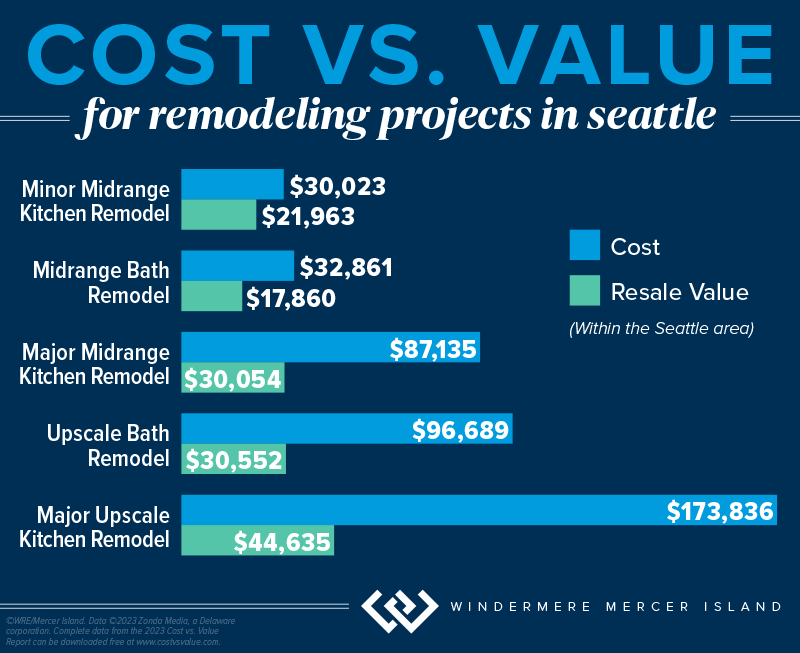


 Facebook
Facebook
 X
X
 Pinterest
Pinterest
 Copy Link
Copy Link
